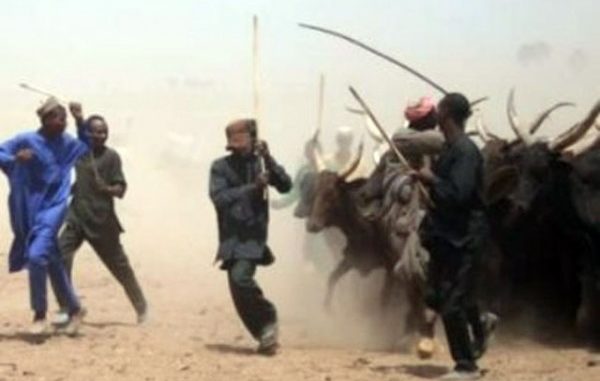
By Kieran Guilbert
DAKAR, June 29 (Thomson Reuters Foundation) – A drive to find common ground among central Nigeria’s warring Muslim herdsmen and Christian farmers has resolved more than 500 land disputes and averted fresh violence, the charity behind the initiative said on Thursday.
Hundreds of people in Nigeria’s middle belt region are killed each year in clashes, mainly over land use, between semi-nomadic, cattle-herding Fulani and settled farming communities.
The violence has surged in recent years as advancing desertification, overgrazing and lower rainfall drive the mainly Muslim pastoralists toward more fertile land in Nigeria’s predominantly Christian south, analysts and activists say.
But a project to train local leaders in conflict resolution, as well as establish joint projects, has settled more than 500 disputes – over issues from grazing rights to water access – in about 50 communities since 2013, aid agency Mercy Corps said.
“Having the opportunity to work towards a common goal has helped to improve their relationship, and resolve disputes peacefully,” said Mercy Corps peacebuilding adviser Lisa Inks.
“By tackling the drivers of conflict, mainly competition for scarce resources, these herders and farmers will be more likely to sustain peace,” Inks told the Thomson Reuters Foundation.
Mercy Corps’ four-year project, funded by Britain’s Department for International Development (DFID), saw communities report fewer tensions, less disruption to their livelihoods and greater trust compared with those outside of the scheme.
While relations between herders and farmers who were not involved deteriorated over the four years, those inside the project felt it was safer to work and travel without fear of violence, according to the aid agency.
The project has also brought together farmers and herders to keep bees and produce honey, grow cassava and rice, and build joint markets where they can trade with each other, Inks said.
Violence between farmers and herdsmen in four states may have cost the country $14 billion or more a year in lost revenues, according to Mercy Corps.
“Conflict in the middle belt has devastated local communities and hampered economic growth for decades,” said Iveta Ouvry, Nigeria country director for Mercy Corps. “These successes demonstrate that we must continue investing in local dispute resolution to address the root causes of this conflict.”
Aid agencies fear the herder-farmer conflict may be overlooked as the country grapples with a Boko Haram insurgency in the northeast and its first recession in 25 years, largely due to low oil prices. (Reporting By Kieran Guilbert, Editing by Lyndsay Griffiths.; Please credit the Thomson Reuters Foundation, the charitable arm of Thomson Reuters, that covers humanitarian news, women’s rights, trafficking, property rights, climate change and resilience. Visit news.trust.org)